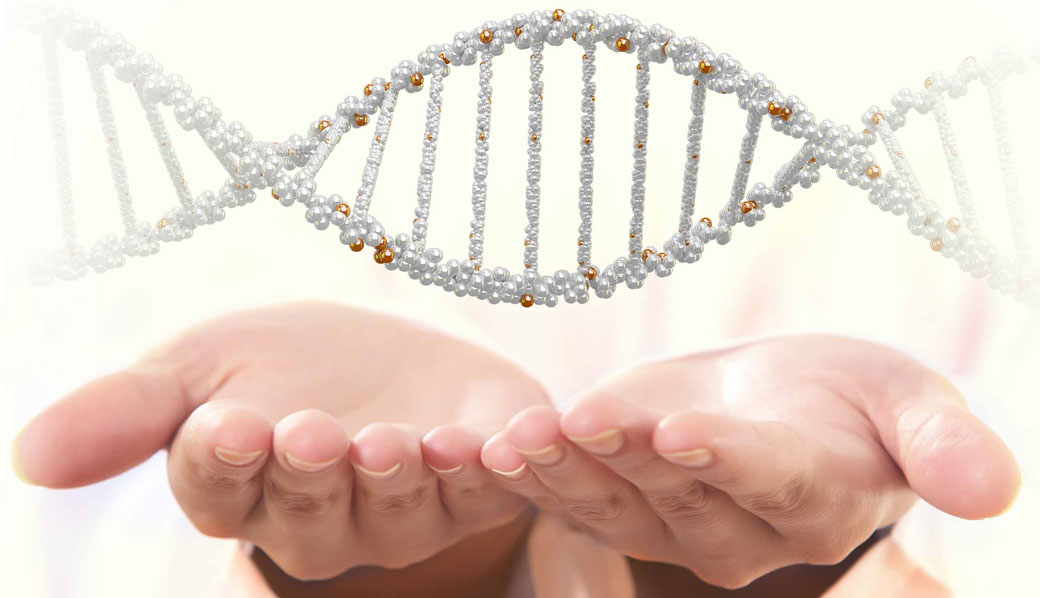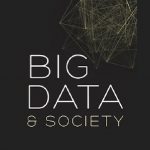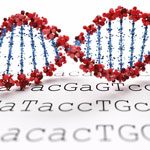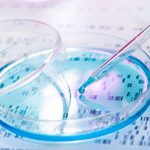
If money were no issue or if you were invited to have your genome sequenced free of charge and donate your anonymized data for biomedical research, would you do it?
Put in a different way: are you a genomic altruist?
 Earlier this year a special issue of the journal Big Data & Society, called Health Data Ecosystem, pondered this question from an interesting perspective: the contrast between the societal value of personal genomic data for the advancement of precision medicine research versus its commercial value to the health insurance industry. The latter, concerned about the impact that increased consumer knowledge about disease risks may have on policy purchasing behaviour by skewing insurance risk pools toward people more likely to get sick in the future, has been trying to gain access to the same personal genetic and genomic information prospective policy-holders have. [1]
Earlier this year a special issue of the journal Big Data & Society, called Health Data Ecosystem, pondered this question from an interesting perspective: the contrast between the societal value of personal genomic data for the advancement of precision medicine research versus its commercial value to the health insurance industry. The latter, concerned about the impact that increased consumer knowledge about disease risks may have on policy purchasing behaviour by skewing insurance risk pools toward people more likely to get sick in the future, has been trying to gain access to the same personal genetic and genomic information prospective policy-holders have. [1]
As this contrast shows, opening the gates to genomic information-sharing has been a double-edged sword. While genomic data repositories are extremely valuable for enabling advances in precision and predictive medicine that bet on deriving insights from the data, the insurance industry’s efforts to convert these insights into a commercial advantage demonstrate one of the challenges that such research will likely continue to face in the future.
So what is genomic altruism and who is likely to participate in it?
Genomic altruism, also called genomic solidarity, is the motivation behind having one´s genome sequenced and making the resultant data available for biomedical research. Some examples of genomic altruism are the participation of thousands of volunteers who have donated their electronic medical records as well as their clinical, genomic, lifestyle, environmental, and even health app sensor data to massive national databases such as the ones curated by the U.S. National Institutes of Health´s All of Us Research Program, the Estonian Genome Project, and the Global Network of Personal Genome Projects. [2-6]
 The premise behind creating these vast repositories is to discover tailored new cures and disease prediction mechanisms or to refine existing ones. The way researchers and data managers go about this is by deploying machine learning and other advanced data analysis techniques to dive into terabytes of data and detect patterns and correlations, such as optimal drug-gene interactions or genetic triggers of disease, across ethnically, gender-, and age-diverse populations. In fact, one of the core features of the All of Us program is that it is the first health data repository that specifically reaches out to, and in some cases prioritizes biospecimen collections from, persons from populations that have been historically underrepresented in randomized control trials and biomedical datasets.
The premise behind creating these vast repositories is to discover tailored new cures and disease prediction mechanisms or to refine existing ones. The way researchers and data managers go about this is by deploying machine learning and other advanced data analysis techniques to dive into terabytes of data and detect patterns and correlations, such as optimal drug-gene interactions or genetic triggers of disease, across ethnically, gender-, and age-diverse populations. In fact, one of the core features of the All of Us program is that it is the first health data repository that specifically reaches out to, and in some cases prioritizes biospecimen collections from, persons from populations that have been historically underrepresented in randomized control trials and biomedical datasets.
To motivate participants and reciprocate “in kind” their generosity, the curators of these data warehouses have committed to communicating to each data donor their individual health information and its predictive output. Although research participants always have the right to refuse finding out their genetic disease risks, which in some cases cannot be mitigated by taking preventive action, for many of them having access to this information is a form of personal empowerment.
Genomic altruists are by and large motivated by sheer desire to enable the advancement of science with the side benefit of becoming better informed citizens or patients. Interestingly, however, according to one survey of public attitudes toward genomic data sharing carried out in the U.S., U.K., Canada and Australia, the 52% of survey participants who happened to hold “genetic exceptionalist” views – meaning that they ascribed more value to DNA data than to any other type of medical information – were up to six times more likely to donate their personal genomic data than other respondents. [7] So one might say there is a “belief in the power of DNA” gradient to the degree of genomic altruism – something that would make for an interesting study in and of itself.
What stands in the way of genomic altruism?
 The world of genomic research is full of potential and database curators are making genuine efforts to both make good on its promise and give back to the data donor community. In this positive context and given the conditions of de-identification and reasonable data security protections, what may deter people from donating their personal health data?
The world of genomic research is full of potential and database curators are making genuine efforts to both make good on its promise and give back to the data donor community. In this positive context and given the conditions of de-identification and reasonable data security protections, what may deter people from donating their personal health data?
As mentioned above, the threat of health insurance premium hikes or outright rejection to insure, based on genetic profiling, loom as the most obvious threat to consumers.
Luckily, many countries have in place genetic non-discrimination regulations that specifically safeguard against such invasions of privacy. [8-10] However, if the threat of insurers accessing prospective customers´ genomic data and underwriting policies based on real or presumed risks is not continually dispelled, genetic discrimination may well move out of the science fiction realm and become a fact of life. Even barring discriminatory intentions, simply the rate at which personal health data become ever more available and collectible means that safeguards from as recently as a few years ago need to be continually updated.
The private health insurance market is necessary for people and organizations who seek protection from a variety of risks, known or unknown, and is normal in a free market economy. Yet insofar as it may affect the willingness of people to donate their health data for research, even the possibility of losing health coverage over genetic risk profiling can be a serious deterrent. In an era that seems to be the dawn of major advances in personalized medicine, but also one where breaches of customer data and online privacy vulnerabilities are still all too common, the benefits of genomic altruism will only be realized if a critical mass of people continue to trust that their data privacy will not be compromised.
References:
[1] https://journals.sagepub.com/doi/full/10.1177/2053951719830111 [2] https://allofus.nih.gov/sites/default/files/gwg_final_report.pdf [3] https://allofus.nih.gov/sites/default/files/gwg_final_report.pdf [4] https://genomics.ut.ee/en/about-us/estonian-genome-centre [5] https://www.broadinstitute.org/publications/broad5522 [6] https://www.personalgenomes.org/ [7] https://www.nature.com/articles/s41431-019-0550-y [8] https://www.genome.gov/24519851/genetic-information-nondiscrimination-act-of-2008 [9] https://www.parl.ca/DocumentViewer/en/42-1/bill/S-201/royal-assent [10] https://www.coe.int/en/web/conventions/full-list/-/conventions/treaty/164

Gergana is a health policy consultant, researcher, and healthcare digital content strategist based in Madrid.
She received her MSc in health policy and management from the Harvard School of Public Health and her MA in journalism from New York University, and has formerly written for Forbes and served as patient experience and communications advisor at the WHO European office. She is a self-taught data science fan and member of various AI and machine learning peer communities.
